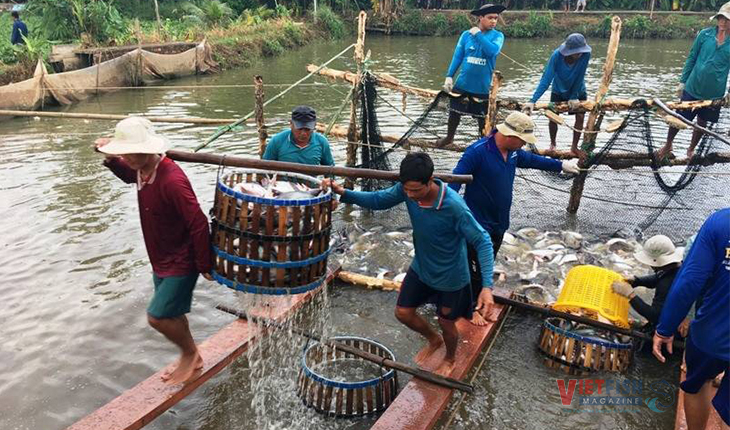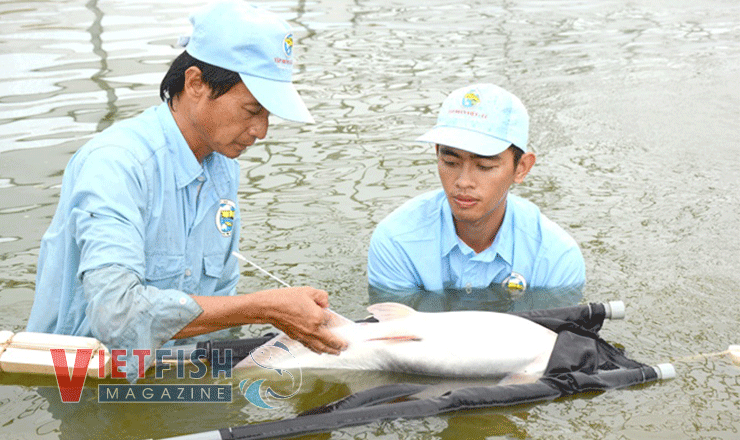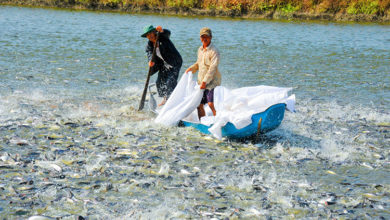Challenges in disease control for pangasius farming
The Department of Animal Health has highlighted key challenges: limited funding, inadequate manpower, and a lack of vaccines.
As of September 2024, pangasius farming in Vietnam has suffered significant losses across 264 hectares, primarily in 60 communes in Dong Thap, An Giang, and Vinh Long provinces. Of this area, 260 hectares were affected by disease, while 3.9 hectares suffered undiagnosed losses. Several regions were hit by multiple diseases, amounting to a total affected area of 289 hectares, with common diseases including bacterial kidney disease, hemorrhagic septicemia, and parasitic infections.

Only five of 12 provinces and cities with significant aquaculture activities have proactive disease prevention plans, with a combined budget of nearly VND 15 billion—a fraction of what is needed. Limited or insufficient funding has hindered disease monitoring, sample collection, and testing in some areas, reducing the capacity for comprehensive and representative data collection across farms, and weakening overall surveillance effectiveness.
Limited or insufficient funding has hindered disease monitoring, sample collection, and testing in some areas, reducing the capacity for comprehensive and representative data collection across farms, and weakening overall surveillance effectiveness.
Further complicating disease management is a lack of cohesion within the veterinary management structure, alongside a shortage of qualified aquaculture veterinary staff, especially at the local level.
Vaccination, a critical component of disease prevention, remains limited. Although six vaccine products are currently authorized for use, including two for kidney disease and hemorrhagic septicemia, only 200 million doses were administered to pangasius by September 2024, covering just 5.1% of over 3.9 billion juvenile fish produced nationwide. This low vaccination rate reflects the lack of awareness or interest among farmers.
Moreover, no pangasius farms in Vietnam have yet registered as disease-free facilities.
VFM






